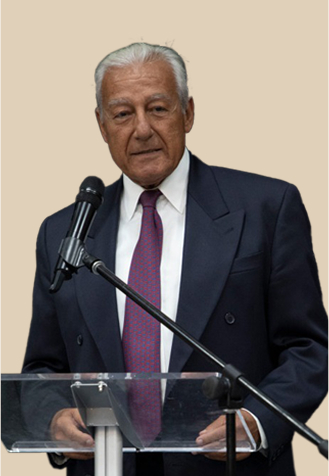Simple Cease-Fires Won’t Lead to a Lasting Peace
Talks must focus on ending the occupation.
By HUSSEIN IBISH
With Israeli tanks besieging everything from the Church of the Holy Nativity to Yasser Arafat’s compound, President Bush has finally taken the war between Israel and the Palestinians seriously enough to dispatch Colin Powell to the region.
All previous peace missions, including those of Anthony Zinni, have been total failures for two fundamental reasons.
First, no U.S. official has ever been allowed to tie American aid to Israeli policies, leaving them with little leverage over Prime Minister Ariel Sharon. Second, the fixation on having an immediate cease-fire while not addressing the ongoing causes of the conflict is an inherently unworkable strategy, because it fails to replace the violence with a viable political process.
Bush’s speech Thursday suggests that there has been at least some movement toward addressing the fundamental realities that fuel the fighting. He called for an end to the Israeli occupation based on U.N. Security Council Resolution 242, which does not allow acquiring territory by war.
The president was, however, careful to include a phrase about “secure and recognized borders” for Israel, which some Israelis interpret as authorizing them to keep land seized in 1967.
President Bush also called for the creation of a viable Palestinian state and for an end to the building of Israeli settlements. These statements reflect a growing realization that, for the conflict to be resolved, there must be as much attention to the Palestinian need for freedom and statehood as there is to Israeli needs for security and recognition.
No one can argue with Bush’s condemnation of suicide bomb attacks against Israeli civilians. They are reprehensible and unjustifiable. However, like so many other American politicians and commentators, the president seems to notice or condemn only attacks on Israeli civilians. The fact that more than 1,000 Palestinian civilians, many of them children, were killed in the past 18 months seems to be irrelevant or justified to many people. The deliberate targeting of Palestinian civilians by Israeli forces has been documented by every human rights group that has looked into it. Outrage over suicide bombings cannot be allowed to eclipse the equal immorality of other forms of murder.
There is also the question why Secretary of State Powell is waiting another week to go on this urgent mission. It is hard to avoid the suspicion that the administration expects Sharon will ignore Bush’s demands, and that the Israeli leader is determined to continue, at least for a few more days, his futile campaign to crush the Palestinians by brute force.
Much of the president’s rhetoric suggested that he buys into the absurd Israeli line that its violent occupation of the Palestinian people is somehow analogous to America’s war against Al Qaeda. Such a fundamental error would make it impossible for the U.S. to play any constructive role in resolving the conflict between the Israelis and the Palestinians.
Moreover, there is no evidence that the administration is yet willing to confront the pro-Israel special interest groups in the U.S. that furiously resist anything less than unconditional support for Israel’s colonial occupation.
But the most troubling aspect of Bush’s rhetoric concerns Arafat himself.
By placing blame for the current situation on him personally and calling for the development of a new Palestinian leadership, the president played into the hands of Sharon and other Israeli extremists who seek to personalize the conflict and make Arafat, rather than the occupation, appear to be its root cause.
What would change if Arafat were gone tomorrow? The checkpoints, the Jewish-only roads and settlements, the Israeli occupation forces and the 3.5 million Palestinians determined to resist and end that occupation by any means necessary would all still be in place. The only obvious effect would be to further radicalize the Palestinian population.
We can no longer afford to pretend that this is all about one man’s real or supposed failings, or that it is “a war on terror” or is a problem that can be dealt with in gradual stages.
What the Palestinians are engaged in is a desperate and ruthless war of national liberation of the most classic kind.
We are far beyond the stage where simple cease-fires and confidence- building measures will be effective. Difficult as it may seem, the only realistic way out is to start serious talks designed to end the occupation completely and use that as a basis for building a workable cease-fire that can become a permanent peace.
Hussein Ibish is communications director of the American-Arab Anti- Discrimination Committee.
Recent Posts
Action Alerts

Your support means everything. Your gift protects rights, builds community, and fights hate. Let’s move forward together.
